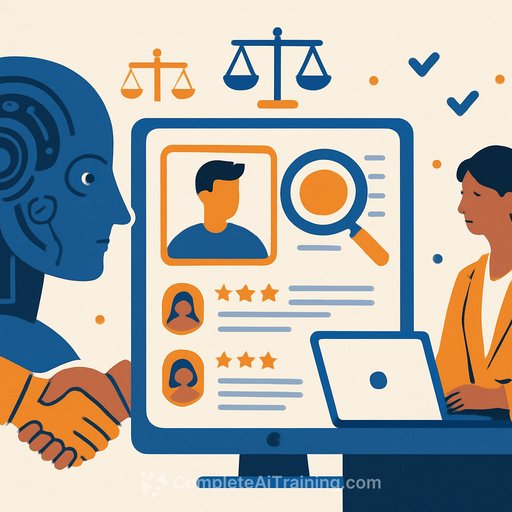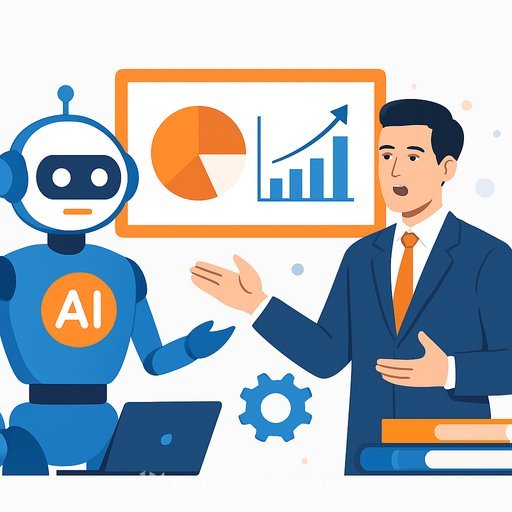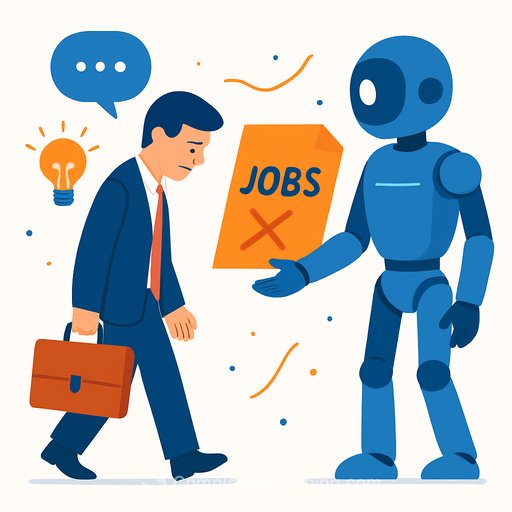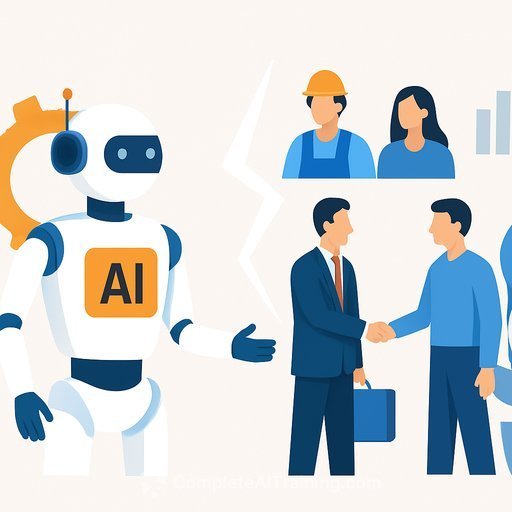The AI Talent Paradox: Balancing Innovation and Risk in Recruitment
The job market in 2025 is no longer centered solely on human effort. Artificial intelligence is rewriting the rules, creating a paradox: AI boosts productivity and wages but also disrupts traditional recruitment and raises the need for tools that ensure ethical use. For HR professionals and investors, this dual nature offers both challenges and opportunities.
Recruitment, once focused on managing human capital, now faces risks as AI automates tasks like resume screening and interview scheduling. Yet, this same technology is opening a new market—AI detection tools—that promote fairness, transparency, and compliance in hiring practices.
The AI-Driven Job Market: A Double-Edged Sword
According to PwC's 2025 Global AI Jobs Barometer, industries most exposed to AI are seeing revenue per employee grow three times faster than less automated sectors. Wages in these sectors are increasing twice as fast, and workers with AI skills earn a 56% wage premium. Despite these gains, 30% of workers worry AI will replace their jobs by 2025, with younger, low-wage, and remote workers feeling the most pressure.
Recruitment firms, traditionally intermediaries between employers and candidates, are caught in the middle. AI tools like chatbots and predictive analytics reduce the need for human involvement in repetitive tasks. For instance, AI resume screening can process 5,000 applications in 20 hours—compared to 230 hours manually. Chatbots handle 70% of candidate inquiries, freeing up 468 hours annually in HR departments. While these efficiencies are clear, they also threaten the traditional recruitment model, pushing agencies to transition from transactional roles to strategic advisors.
The Rise of AI Detection Tools: Ensuring Fairness and Compliance
The same AI that streamlines recruitment also creates risks around bias, data privacy, and transparency. A 2025 McKinsey report found that 35% of recruiters worry AI might exclude candidates with non-traditional skills, and 66% of U.S. adults avoid jobs using AI in hiring. This skepticism drives demand for AI detection tools that audit for bias, flag unfair practices, and ensure adherence to regulations like the EU's AI Act.
The AI recruitment market was valued at $617.5 million in 2024 and is expected to grow at a 7.4% compound annual growth rate, reaching $1.56 billion by 2037. By 2025, 87% of companies worldwide use AI in recruitment, and 42% prioritize AI training by 2027. However, only 34% of organizations currently reskill employees to work with AI, highlighting a gap that detection tools can help address.
Investment Implications: Balancing Risks and Opportunities
Investors must carefully weigh exposure to AI-driven recruitment with safeguards against its risks. Consider these key points:
Long-Term Risks for Traditional Recruitment Firms
Recruitment agencies that don’t adopt AI risk becoming obsolete. In 2023, 23.5% of U.S. companies replaced workers with AI tools—a trend expected to grow. Agencies must integrate AI or risk losing business to more cost-effective, algorithm-driven competitors.
Growth in AI Detection Tools
Demand for bias detection and AI audit software is increasing. Tools like HireVue’s bias detection and Unilever’s AI audit platforms provide not just regulatory compliance but a competitive edge in attracting talent. The AI detection market in recruitment is projected to grow 6.78% annually, reaching $1.12 billion by 2030.
Geographic and Sectoral Opportunities
North America leads AI adoption in recruitment, with 99% of Fortune 500 companies using AI tools. The Asia-Pacific region is the fastest-growing market, driven by government support and tech startups. Sectors such as healthcare and education still lag in AI use but offer significant potential.
The Ethical Imperative: Beyond Profit
Financial gains aside, ethical concerns are paramount. A 2025 PwC report warns that 14% of global workers may need to change careers by 2030 due to AI. Detection tools must not only identify bias but also support hiring practices aligned with diversity and inclusion goals. Investors should back companies that prioritize ethical AI use and transparency.
Conclusion: Adapting to the New Recruitment Reality
The AI-driven job market is reshaping recruitment. The challenge for HR professionals is to shift from gatekeepers to facilitators of human-AI collaboration. For investors, the focus should be on technologies that reduce risks while maximizing AI’s benefits.
Success in the next decade depends on how quickly recruitment can adjust to new AI-powered processes without losing sight of the values that make work meaningful. As AI and humans work side by side, the question is not if AI will change recruitment, but how effectively we embrace the change.
For HR professionals seeking practical AI training and insights, explore Complete AI Training's latest courses designed to build AI skills relevant to recruitment and beyond.
Your membership also unlocks:






